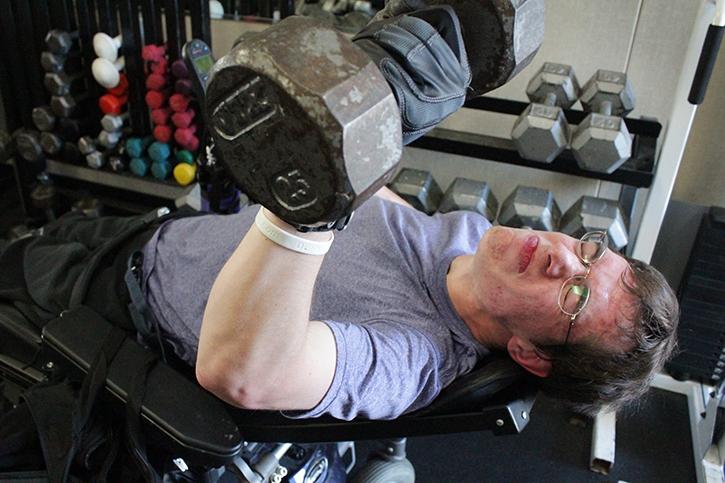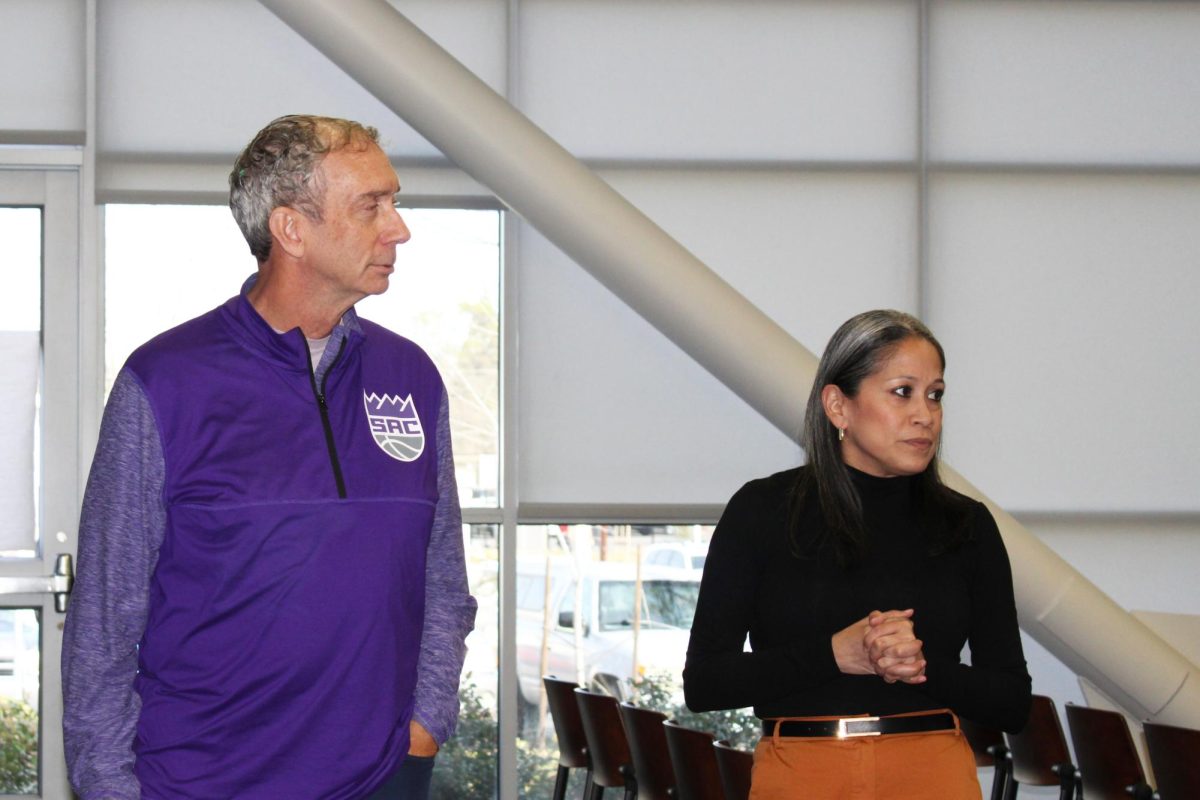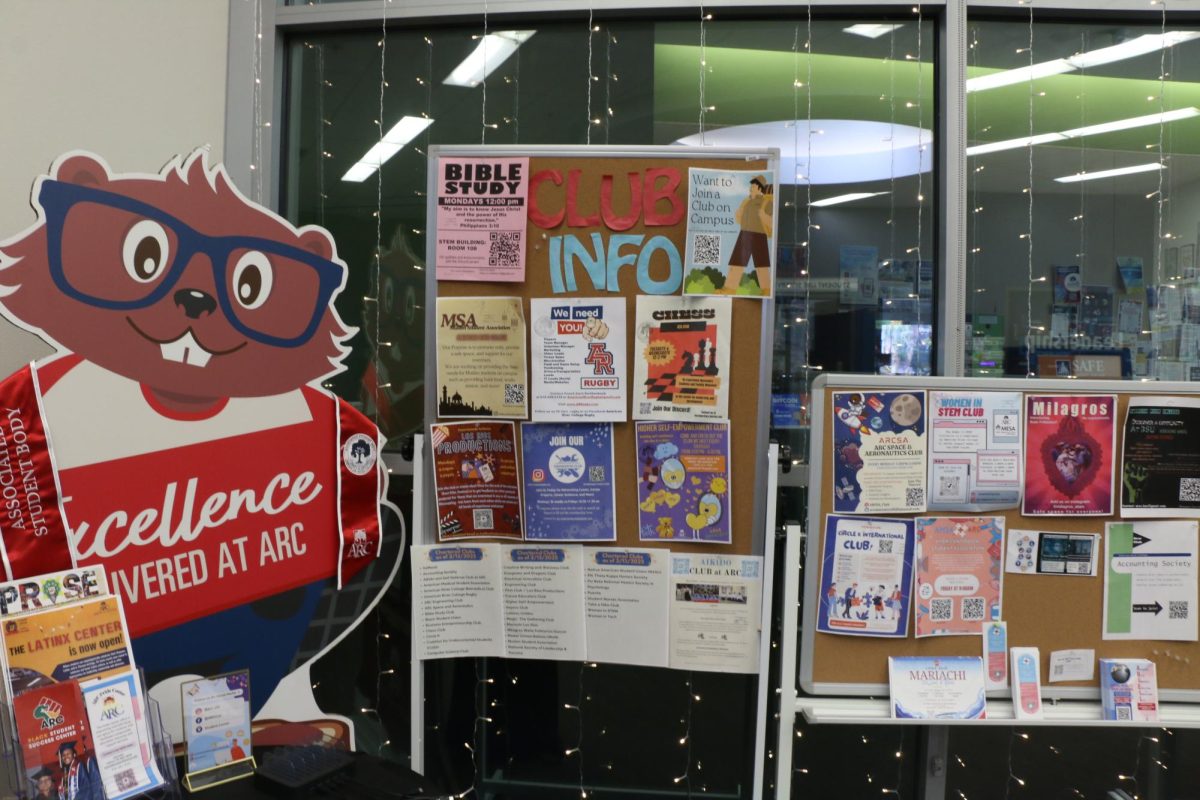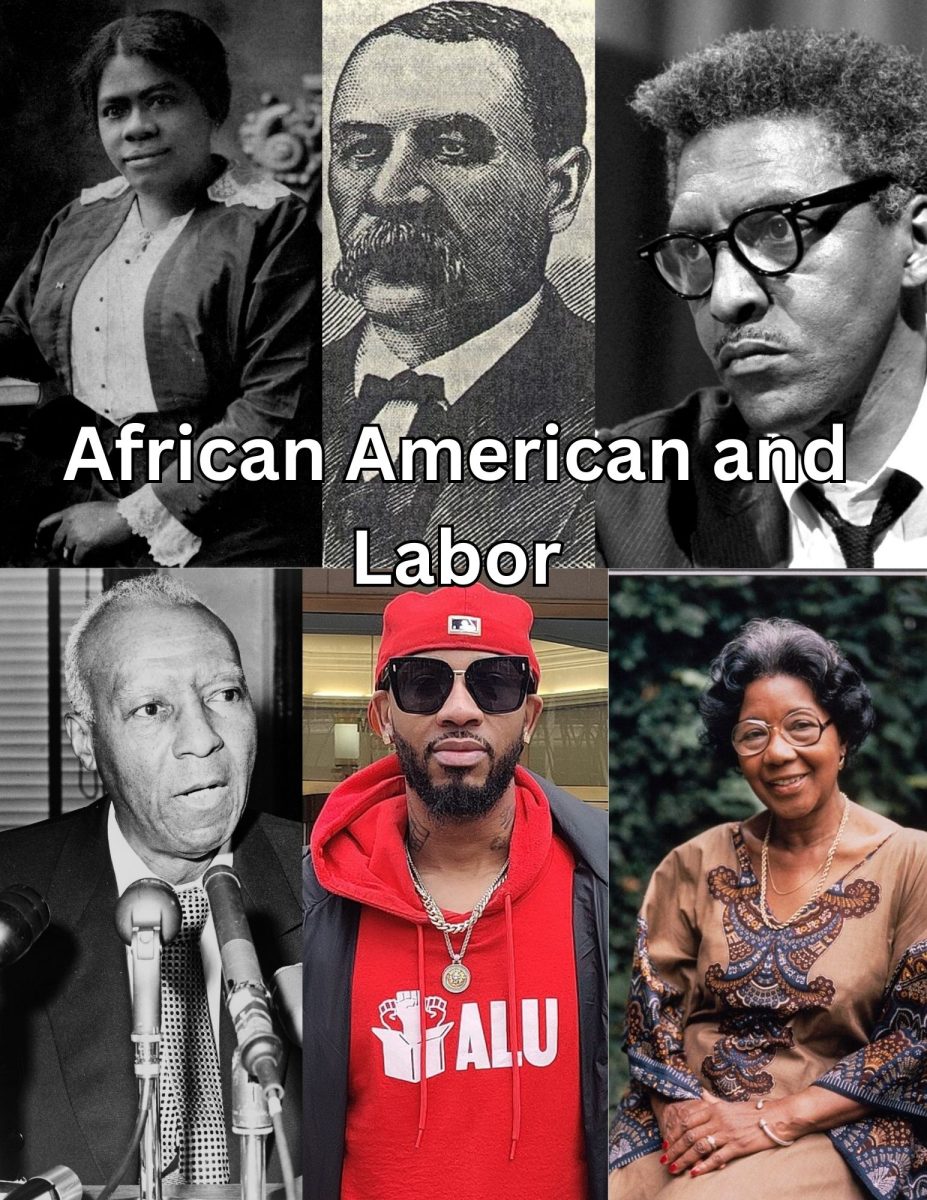Be persistent, stay positive, stay ready and don’t let fear and doubt get in the way of your dreams. This is what American River College student Adam Felton tells people to keep them motivated. Felton, 22, has Cerebral Palsy (CP), but has used the American River College Adaptive P.E. center to overcome obstacles that may have stopped many from achieving their fitness goals.
According to webmd.com, CP is a broad term used to describe a group of chronic “palsies,” or disorders that impair control of movement due to damage to the developing brain. CP is one of the most common causes of chronic childhood disability.
The Adaptive P.E. center is a workout room located behind the pool area with equipment for students with disabilities, such as the hand cycle and the lift bar, which has no seat so students using wheelchairs can use it.
Ray Maero, adapted physical education professor, hopes to open a summer class for the students. “That is where we are having problems with trying to find how we can fund an (instructional assistant) for that position, because we will have a big class in the summer, so we need the extra help,” said Maero.
At ARC, Felton heard about the Adaptive P.E. center through friends and thought it would be “awesome.”
Brian Sprinkle is the instructional assistant for the Adaptive P.E. department and has seen the improvement in Felton from day one.
“When I first met (Felton), I could tell he was a bright student,” said Sprinkle. “He was kind of new to the whole exercise program.”
Felton started off doing the lat pull down bar at a weight of 30 pounds two years ago. His maximum weight now is 165 pounds. “On one hand it is kind of disappointing,” said Felton. “You want to go kind of higher, you want to push the limit even more, but at the same time it’s just a wonderful feeling to know all the hard work paid off.”
Felton was awarded Student of the Semester, an award to given to students who go above and beyond, show up to class every day and excel in the area they are in for the semester.
“It’s really gratifying to know that the hard work had paid off,” said Felton. The reward was less for him and more for other students. “I wanted to be an example for other disabled students. That if you work hard and put forth the effort and stay dedicated and you stay disciplined, then good things can happen.”








